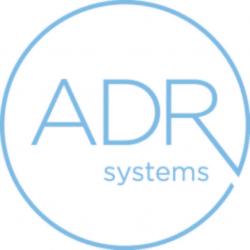Mediation is not a one-size-fits-all process, and mediators often draw on two distinct styles to guide parties to resolution. Facilitative mediation centers on creating space for open dialogue, while evaluative mediation involves offering clear-eyed guidance and assessments.
At ADR Systems, our mediators tailor their approach to the needs of each case, drawing from both styles as circumstances require. Attorneys who understand mediator styles are better equipped to help their clients navigate the mediation process. Our senior mediators, Hon. Dennis J. Burke, (Ret.) and Hon. Brigid M. McGrath, (Ret.), break down facilitative mediation, evaluative mediation and a combination of the two styles, revealing how they adjust their approach to reach a successful settlement.
Facilitative Mediation: Creating Space for Dialogue
Facilitative mediation originated in the 1960s as the foundation of modern dispute resolution. In this approach, the mediator takes an active role in guiding the process but refrains from offering advice or an appraisal on the case. Instead, the parties explore potential solutions themselves, facilitated by the mediator.
“The mediator helps the parties communicate with each other and guide them to resolution,” explained Judge Burke.
This style is especially valuable when communication has broken down or when preserving a relationship is a key priority. It encourages the parties to engage deeply in negotiation and to uncover the underlying interests behind their stated positions. According to Judge Burke, listening closely in the early stages of mediation often reveals subtle but crucial motivations. “I had a commercial mediation where companies were still doing business but suing each other. It was important for them to maintain their business relationship and keep the companies running — that was their true interest.”
Facilitative mediation is particularly effective in disputes where the parties are motivated to maintain a degree of control over the outcome. The mediator’s role is to foster a collaborative environment in which each side can clarify its needs and priorities, often leading to more sustainable and mutually acceptable solutions. This approach works well in cases involving ongoing business partnerships or sensitive contractual matters — circumstances where directive tactics may risk deepening tensions or closing off dialogue too soon.
Evaluative Mediation: Offering Guidance and Clarity
Evaluative mediation emerged in the 1980s, partly influenced by court-referred mediation programs and modeled after judicial settlement conferences. In this approach, the mediator offers opinions, evaluations or recommendations and may even predict outcomes if the case went to trial.
“In evaluative mediation, the mediator is more involved — offering evaluations of the parties’ positions, suggesting outcomes and pointing out legal realities,” said Judge Burke. “It becomes especially helpful when parties are stuck or when they ask directly for the mediator’s input.”
This style is often preferred in cases with significant questions of law, legal complexity or uneven power dynamics. It can be particularly effective in time-sensitive matters or where litigation costs loom large. A study examining mediation in construction disputes has shown that evaluative techniques often succeed in breaking impasses when facilitative approaches have stalled, leading to more consistent settlement outcomes in complex cases.
Judge McGrath noted that evaluative mediation often plays a critical role at key moments: “Sometimes lawyers want me to tell their clients why their case might not be as strong as they think. If the parties are close but not settling, I may evaluate each side’s case and give them a recommendation.”
While evaluative mediation offers valuable clarity, especially in legally complex cases, it requires careful balance. If overused, it may shift too much influence to the mediator, potentially limiting party participation in the outcome. To preserve the integrity of the process, mediators at ADR Systems take a calibrated approach, incorporating evaluative input only if appropriate, or when asked by the parties.
Combining Styles: Responding to Evolving Dynamics
In practice, mediators often blend facilitative and evaluative styles throughout the course of mediation. Mediators rely not only on their experience, but on their ability to read the room and respond to the evolving dynamics of each case.
“I tell the parties I start as a facilitator — I’m a sponge for information, and I am a conduit for productive dialogue,” said Judge Burke. “Only if the parties hit an impassible roadblock or ask for my opinion, that’s when I step in with a more evaluative approach.”
Judge McGrath shared a similar view: “Even when I’m being facilitative, I might point out practical obstacles they could face in court. If the parties want a more evaluative approach, I make sure I’m well-prepared and familiar with the subject matter and the law.”
Her insight reflects the value of preparation and credibility in evaluative moments. When a mediator offers informed guidance grounded in experience and legal knowledge, parties gain a new perspective on their case. This often prompts them to reevaluate their own stance and consider new paths to resolution.
Strategic Use of Styles
There is no one-size-fits-all formula. Some disputes require delicate handling and trust-building, and others demand directness and clarity. Effective mediation hinges not just on style, but on the mediator’s skill in adapting their mediation style to meet the moment. As Judge Burke summarized: “It’s not about being strictly facilitative or evaluative. It’s about knowing when to listen, when to nudge and when to step in with a recommendation. That’s how cases get resolved.”
…………
Hon. Dennis J. Burke, (Ret.) has expertise in both commercial and personal injury matters. Following a 23-year legal career, he spent 15 years in the Cook County Circuit Court Law Division. An early advocate of alternative dispute resolution, Judge Burke created a program to mediate complicated discovery disputes – a program that is still used in the Circuit Court today. Judge Burke is well known for his keen ability to build trusting relationships with all parties.
Request Judge Burke’s Availability
Hon. Brigid M. McGrath, (Ret.) has handled complex commercial and personal injury case types throughout her 34-year legal and judicial career, including construction defect, legal malpractice, medical malpractice, insurance coverage and product liability matters. As a senior mediator and arbitrator, she is skilled at diffusing conflict and identifying root causes of disputes. Counsel know Judge McGrath will prepare thoroughly for every case and work diligently toward resolution.
Request Judge McGrath’s availability
ADR Systems, It’s Settled.®





